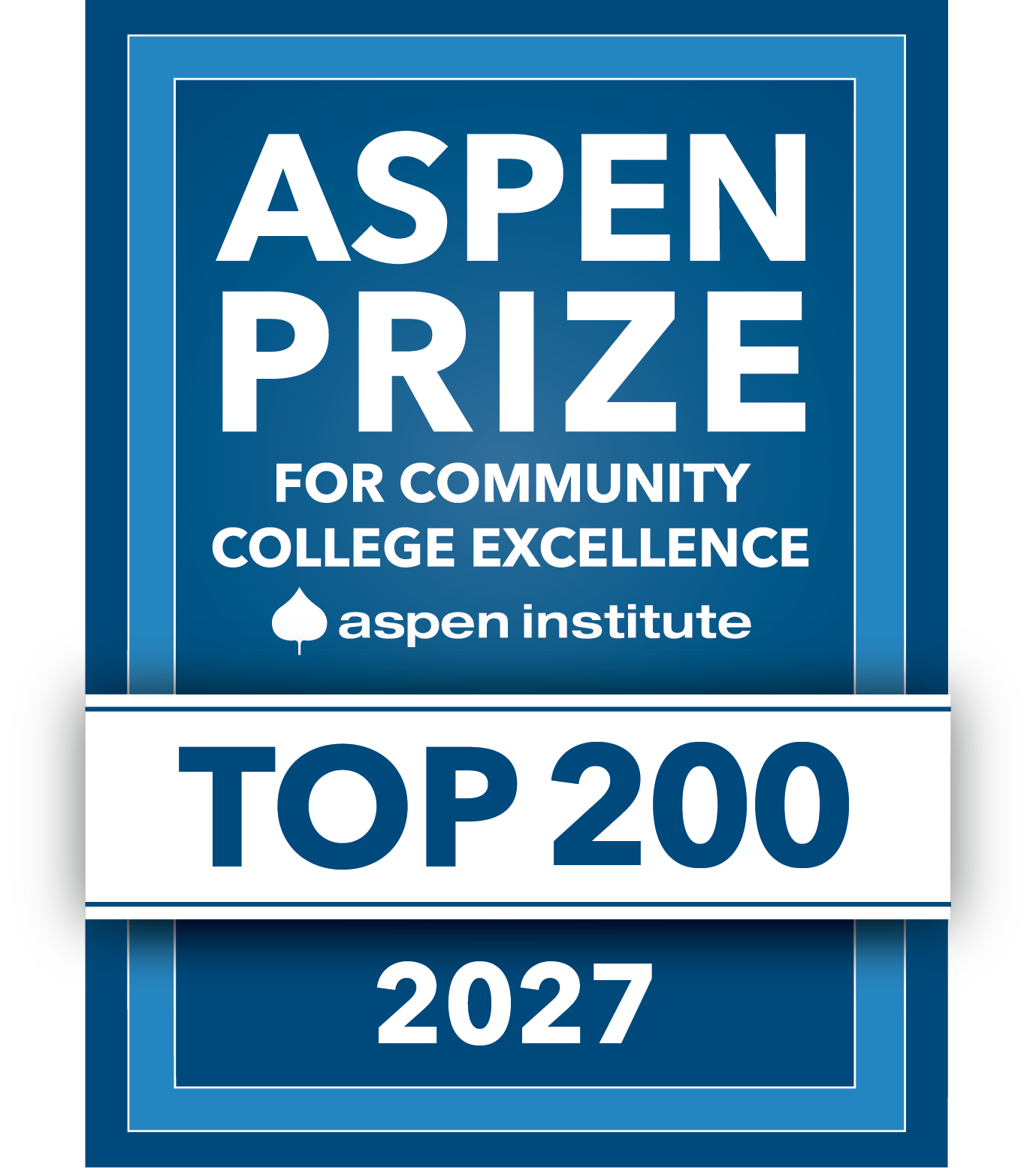The Aspen Institute Names FSCJ as a Top 200 U.S. Community College Eligible for the 2027 Aspen Prize

Today, the Aspen Institute named Florida State College at Jacksonville (FSCJ) as one of the 200 institutions eligible to compete for the $1 million Aspen Prize for Community College Excellence, the nation’s premier recognition of high achievement and performance among two-year colleges. Started in 2010, this is the ninth cycle of the Aspen Prize.
“Being recognized once again as one of the top community colleges among such a distinguished group of institutions is an honor for FSCJ,” said College President John Avendano, Ph.D. “This continued recognition reaffirms the unwavering dedication and commitment of our faculty, staff and administrators to the success of our students, both within and beyond the classroom.”
The 200 colleges were selected based on their student outcomes data, including retention, completion and transfer rates. Together, they represent the breadth and diversity of the community college sector. They are located in urban, rural and suburban areas across the country and serve anywhere from a few hundred students to tens of thousands. Some of these colleges focus primarily on workforce programs, while others focus on transfer and bachelor’s attainment or a combination of the two.
“The Aspen Prize rewards colleges that achieve the kind of outcomes that actually matter to students—completing college degree programs that, in turn, lead to lifelong success,” said Josh Wyner, executive director of the Aspen Institute College Excellence Program. “At a time when many Americans are struggling to pay their bills, Aspen Prize winners offer a powerful message: Community colleges can deliver the kind of life-changing education that makes the American Dream real.”
As a next step, the 200 eligible colleges have been invited to participate in a rigorous review process that will culminate in the naming of the Aspen Prize winner in spring 2027. Over the coming 20 months, the colleges that apply for the Aspen Prize will be rigorously assessed based on (1) student outcomes data, ranging from student retention and completion rates to employment and wages after graduation, and (2) whether they have engaged in scaled practices that led to high and improving student outcomes.
Community colleges play a vital role in higher education across the country, educating about 40 percent of all undergraduates. Yet, national student outcomes fall short in both the rate at which students graduate and the percentage of students that achieve success after graduation. Aspen defines success as the ability to secure a good-paying job either after earning a community college credential or after successfully transferring and earning a bachelor’s degree.
The Aspen Prize celebrates those community colleges with high and improving rates of student success. Aspen uses multiple data sources to identify colleges that are excelling, recognizing achievement in six key areas: teaching and learning, certificate and degree completion, transfer and bachelor’s attainment, employment and wages after graduation, and levels of college access. Aspen then researches the practices of these top colleges in order to share successful strategies with the field.
“Among these 200 colleges are some really special places that deliver strong and improving outcomes for students across the board,” Wyner said. “Our job over the coming 20 months is to work with a deep bench of field experts to assess which of these 200 stand out so we can not only honor them with a monetary award but drive attention to the most effective field practices that other colleges can replicate.”
Eligibility for the Aspen Prize is based on publicly available data. Colleges must show strong and improving student outcomes in first-to-second year retention, credentials awarded, and completion and transfer rates. To identify the 200, Aspen updated its data model—including new measures for part-time degree completion, transfer rates, and bachelor’s attainment—by adding data from the National Student Clearinghouse to federal data sets already being used.
Nationwide, about 20 percent of community colleges have been invited to apply (200 of just under 1,000 public two-year colleges assessed for Aspen Prize eligibility). This represents an increase from the 150 institutions eligible to apply for the Aspen Prize in prior cycles. The full list can be accessed on the Aspen Prize homepage.
The next steps in the process include:
- November 13/December 9, 2025: Application deadlines for the 2027 Aspen Prize
- April 2026: Announcement of 25 semifinalists, selected based on assessments of extensive data and the application, by a group of 11 experts in community colleges, higher education, and workforce
- June 2026: Announcement of 10 finalists, selected by the same group of experts
- Fall 2026: Collection of additional data from the 10 finalists, including employment and earnings data for graduates from 2020 and 2025, as well as qualitative assessments of practices by field experts during multi-day site visits to each of the 10 finalists
- February 2027: The Aspen Prize winner selected by a distinguished, independent jury
- Spring 2027: Announcement of the Aspen Prize winner and celebration of the 10 finalists at an event in Washington, D.C.
To read more about the selection process, visit as.pn/prize.
The Aspen Prize is generously funded by Ascendium Education Philanthropy and the Joyce Foundation.
Previous winners are:
- 2025: Southwest Wisconsin Technical College (WI)
- 2023: Amarillo College (TX) and Imperial Valley College (CA)
- 2021: San Antonio College (TX)
- 2019: Indian River State College (FL) and Miami Dade College (FL)
- 2017: Lake Area Technical Institute (SD)
- 2015: Santa Fe College (FL)
- 2013: Santa Barbara City College (CA) & Walla Walla Community College (WA)
- 2011: Valencia College (FL)
Note: Colleges that have won the Aspen Prize are not eligible to apply in subsequent years
